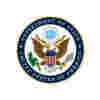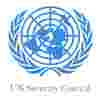Cards component
-
 Accordion component
Accordion componentDisplays heading text with expandable elements that reveal hidden text. Can be used to display FAQs, for example.
-
 Cards component
Cards componentDisplays a list of cards, each referencing a piece of content (either a page, or a dedicated piece of "Card" content).
-
 Hero component
Hero componentUsed on the homepage and other landing pages to prominently feature a key message and call to action.
-

-

-

-
 Quote component
Quote componentDisplays specific lines of copy. This component is typically used to call-out quotations or highlight sections of text.
-

This Cards component references an entire folder of cards, rather than referencing them individually.
-
-
The elements that define terrorism
Compare the which behavioural signals governments and international bodies use the most to legally define and proscribe terrorist and violent extremist individuals, activities and groups.
-
Risk mitigation designation lists
Applying government terrorist designation lists. Understand the pros, cons, and risk mitigation strategies to consider when assessing how to apply government terrorist designation lists.
-
How terrorism is defined globally
Compare the global use of behavioural signals that governments and international bodies use to legally define and proscribe terrorist and violent extremist individuals, activities and groups.
-
Contextual Resources: GNET
Browse and access the Global Network on Extremism and Technology (GNET)'s wealth of actionable resources to gain a deeper understanding of how terrorism and violent extremism manifest in relation to specific themes.
-
 Focus caseU.S.
Focus caseU.S.The addition of a group or individual to a government designation list goes beyond signalling the country’s political position. This article outlines the overall designation process in the United States, as well as the various ways in which its consequences include multiple government agencies with varying degrees of legal oversight and impact.
-
 Focus caseNew Zealand
Focus caseNew ZealandDesignating the perpetrator of an attack to a list of terrorist entities allows governments to freeze an individuals assets and financial networks. The designation of the Christchurch attacker as a terrorist allowed the government of New Zealand to make it a criminal offense to fund or support any efforts by the individual. This also signalled to tech companies that they could take stronger actions against instances of the attacker’s livestream, manifesto and wider online praise or support for the attacker.
-
 Focus caseCanada
Focus caseCanadaBy adding a group to a legally binding proscribed terrorist list, legal action can swiftly be taken to halt the group’s operations. Canada proscribed Proud Boys in 2021 leading to its dissolution of Canadian chapters. This designation lists Proud Boys as a Neo-fascist organization that engages in political violence. This official status and language allows tech companies to act more comprehensively against an entity that might otherwise be seen as “awful but lawful”.
-
 Focus caseUnited Nations
Focus caseUnited NationsThe use of government terrorist designations to target civilians, political opposition, or media networks has been legally scrutinized. In this case, the UN Office for Human Rights (OHCHR) requested that the Kazakh government undergo an independent investigation for their use of terrorist designation to justify the killings, and detention of civilians. These types of UN documents can help tech companies make more nuanced decisions about how they apply government and international government guidance on terrorism in a way that respects human rights.
-
 Focus caseUN Resolution 2396
Focus caseUN Resolution 2396In its resolution 2395 (2017), renewing the mandate of the Counter-Terrorism Committee Executive Directorate (CTED), the UN Security Council - Counter Terrorism Committee reminds States that effective measures to counter terrorism and violent extremism are complementary to their commitment to human rights, and essential to long term success.
-
 Focus caseNorth Korea
Focus caseNorth KoreaGovernments have a history of adding particular actors to terrorist designation lists as part of their larger foreign policy strategy. The United States’ designation of North Korea as a state sponsor of terrorism makes it very difficult for international companies and global tech platforms to operate or connect people in parts of the world that are already often isolated from the international community. Iran, Sudan and Syria have also faced similar status in US designations.
-
 Focus caseU.S. / Iran
Focus caseU.S. / IranTerror designations can be included in negotiations or escalating tensions between countries. In 2019 the US designated Iran’s Revolutionary Guard (IRGC) as a foreign terrorist organization. In retaliation, in 2020 the Iranian government designated the U.S. military and Pentagon as terrorist organizations as a response to the IRGC designation and killing of their military leader, Qassim Soleimani. Designating government officials and organizations can make it extremely difficult for tech companies and other sectors looking to be legally compliant on disallowing “praise and support” of terrorist entities. Disallowing a country to praise their own military or government official could lead to vast over censorship of wider normative speech from civil society.
-
 Focus caseRussia
Focus caseRussiaIn 2022 Russian courts banned Facebook and Instagram for ‘extremist activities’ at the height of the invasion of Ukraine, as well as publicly seeking to add the tech company onto their national designation list. This was seen as retaliation for the platforms’ labelling and in some cases removal of Russia media posts and channels under their misinformation policies.
-
 Focus caseArab Gulf Countries
Focus caseArab Gulf CountriesCountries invoke national security priorities as a way to add certain opposition actors to terror designation lists. Bahrain, Saudi Arabia, and the United Arab Emirates have been criticized for numerous cases of human rights abuses by the governments applying overly broad restrictions on citizens under the guise of anti-terror laws, curtailing free expression, association, and assembly.
-
 Focus caseChina
Focus caseChinaThe Chinese government has a history of using designations to target dissidents and human rights activists under the pretext of counterterrorism. This report points to the country’s evolving, and broad, criteria for designation along with cases of designated groups that the international community do not view as terrorist organizations.
-
 Focus caseU.N. Resolution 1624
Focus caseU.N. Resolution 1624The chilling effect that designation lists have on civil society are particularly significant considering the role these organizations play in healthy democracies. The UN resolution 1624 stresses the significance of CSOs through their ability to promote tolerance and coexistence, and to foster a peaceful environment.
-
 Focus caseGlobal Biased Focus on Islamist Violence
Focus caseGlobal Biased Focus on Islamist ViolenceTerrorist designation lists have a biased focus on Islamist extremist terrorist groups. Only recently have governments moved to add white supremacist and neo-Nazi groups to their designations.
-
 Focus caseU.N. Resolution 2178
Focus caseU.N. Resolution 2178The United Nations’ terrorist designation list is viewed as one of the most globally agreed upon. However, in this resolution, the intergovernmental body highlights the significance of recognizing that terrorism cannot and should not be associated with any religion, nationality or civilization.
-
 Focus caseE.U. / India / Pakistan / Russia /U.K. / U.S.
Focus caseE.U. / India / Pakistan / Russia /U.K. / U.S.Some governments do not offer much clarity around the designation process and qualifications. This research article points to 6 national case studies to better understand the underlying mechanisms for designation as it does not seem to be driven by target or attack severity.
-
 Focus caseU.S.: Complexity of the Designation Process
Focus caseU.S.: Complexity of the Designation ProcessThe processes surrounding terror organizations’ designation and/or removal can be rather complex. This analysis of the definition of terrorism in the US context highlights some questions around the existing application of the tier III terrorist designation.
-
 ResourceUN outline of specification areas needed around tech definitions of terrorism
ResourceUN outline of specification areas needed around tech definitions of terrorismMandate of the Special Rapporteur on the promotion and protection of human rights and fundamental freedoms while countering terrorism.
-
 ResourceLegal processes and consequences of the designation in the U.S
ResourceLegal processes and consequences of the designation in the U.SWhat does a "Terrorist Designation" mean? Anna Meier's political essay discusses what "terrorist" designation really means.
-
 ResourceGIFCT's Human Rights Impact Assessment
ResourceGIFCT's Human Rights Impact AssessmentThe Global Internet Forum to Counter Terrorism (GIFCT) commissioned BSR to conduct a human rights assessment of its strategy, governance, and activities. The purpose of this assessment is to identify actual and potential human rights impacts (including both risks and opportunities) arising from GIFCT’s work and make recommendations for how GIFCT and its participants can address these impacts.
-
 ResourceThe significance of transparency in methods
ResourceThe significance of transparency in methodsPolitical Violence at a Glance examines how governments decide which groups are "Terrorist organizations".
-
 ResourceThe U.S. government’s legal criteria for designation
ResourceThe U.S. government’s legal criteria for designationForeign Terrorist Organizations (FTOs) are foreign organizations that are designated by the Secretary of State in accordance with section 219 of the Immigration and Nationality Act (INA), as amended. FTO designations play a critical role in our fight against terrorism and are an effective means of curtailing support for terrorist activities and pressuring groups to get out of the terrorism business.
-
 ResourceThe implications of multinational lists
ResourceThe implications of multinational listsTerrorist definitions and Designations lists, What Technology Companies Need to Know. Royal United Services Institute for Defence and Security Studies - Global Research Network on terrorism and Technology: paper No.7
-
 ResourceGIFCT’s outlined benefits of combining multiple lists
ResourceGIFCT’s outlined benefits of combining multiple listsBroadening the GIFCT Hash-Sharing Database Taxonomy: An Assessment and Recommended Next Steps
-
 ResourceGIFCT’s Human Rights Impact Assessment.
ResourceGIFCT’s Human Rights Impact Assessment.The Global Internet Forum to Counter Terrorism (GIFCT) commissioned BSR to conduct a human rights assessment of its strategy, governance, and activities. The purpose of this assessment is to identify actual and potential human rights impacts (including both risks and opportunities).
-
 ResourceThe U.N. resolution and fact-sheet requiring any measure taken to combat terrorism to comply with international human rights.
ResourceThe U.N. resolution and fact-sheet requiring any measure taken to combat terrorism to comply with international human rights.Resolution 1456 (2003) Adopted by the Security Council at its 4688th meeting, on 20 January 2003
-
 ResourceThe U.N. Report focused on the promotion and protection of human rights and fundamental freedoms while countering terrorism.
ResourceThe U.N. Report focused on the promotion and protection of human rights and fundamental freedoms while countering terrorism.The United Nations report focused on the promotion and protection of human rights and fundamental freedoms while countering terrorism.
-
 ExplainerThe Community Impacts of Legal Definitions of Terrorism
ExplainerThe Community Impacts of Legal Definitions of Terrorism -
 ReferenceUN General Assembly Report
ReferenceUN General Assembly ReportReport of the Special Rapporteur on the promotion and protection of human rights and fundamental freedoms while countering terrorism.
-
 ReferenceUN Security Council Designation List
ReferenceUN Security Council Designation ListThe Consolidated List includes all individuals and entities subject to measures imposed by the Security Council.
-
 ReferenceU.N. Resolution 1267
ReferenceU.N. Resolution 1267U.N. Resolution regarding the situation in Afghanistan (1999)
-
 ReferenceU.N. Resolution 1566
ReferenceU.N. Resolution 1566A Security Council Resolution on threats to international peace and security caused by terrorist acts.
-
 ReferenceCanadian Prosecution of Far-Right Extremism
ReferenceCanadian Prosecution of Far-Right ExtremismAn article on how Canada views far-right violence and approaches prosecution.
-
 ReferenceAustralian Study on Attitudes Toward Muslims
ReferenceAustralian Study on Attitudes Toward MuslimsA Deakin University study exploring how terrorism concerns moderate the relationship between anti-Muslim prejudice and knowledge of Islam.
-
 ResourceThe Interoperability of Terrorism Definitions
ResourceThe Interoperability of Terrorism DefinitionsGIFCT's Year 2 Legal Frameworks Working Group sought to facilitate an expansion of the understanding of the possible implications for companies of the current level of (in)coherence regarding TVEC across commercial, national, regional, and international definitions of terrorism.
-
 ResourceGIFCT Global Definitions of Terrorism Map
ResourceGIFCT Global Definitions of Terrorism MapCompare which behavioral signals governments and international bodies use the most to legally define and proscribe terrorist and violent extremist individuals, activities, and groups.
-
 ReferenceDefining Terrorism
ReferenceDefining TerrorismThe report looks at how terrorists, victims of terrorism, religious authorities, mass and social media, national governments, the United Nations, and members from academia have tried to define terrorism.
-
 ReferenceTerrorists Definitions and Designations Lists: What Technology Companies Need to Know
ReferenceTerrorists Definitions and Designations Lists: What Technology Companies Need to KnowA primer on terrorist definitions and designations targeted towards tech companies.
-
 ReferenceDatabase of Legislation on the Definition of Terrorism
ReferenceDatabase of Legislation on the Definition of TerrorismA database of countries' laws defining terrorism and penalties associated with committing or supporting acts of terrorism. The database includes counterterrorism legislation, anti-money laundering, and combating financing of terrorism legislation, criminal codes, NGO laws, and any other relevant domestic legislation in place that has a bearing on the way that the country defines terrorism.
-
 ReferenceWho Designates Terrorism?
ReferenceWho Designates Terrorism?A Tech Against Terrorism report that analyzes 12 different global definition systems and how designations are implemented. The report concludes with recommendations for moderating terrorist content online.
-
 ReferenceDefining and Classifying Terrorist Content Online
ReferenceDefining and Classifying Terrorist Content OnlineAn assessment and recommended next steps for broadening the GIFCT Hash-Sharing Database Taxonomy. Assessments were undertaken by GIFCT staff and academics, practitioners, and civil society leaders. An appendix of select global definitions of terrorism and violent extremism can be found at the conclusion of the report.
-
 ReferenceStrategic Intelligence Assessment and Data on Domestic Terrorism
ReferenceStrategic Intelligence Assessment and Data on Domestic TerrorismThe Federal Bureau of Investigation and Department of Homeland Security assessment on domestic terrorism, which includes a discussion of activities, certain data on domestic terrorism matters, and recommendations.
-
 ReferenceProtecting National Security in Partnership With All Canadians
ReferenceProtecting National Security in Partnership With All CanadiansCanadian Intelligence Service report on ideologically motivated violent extremism and how it will impact Canada.
